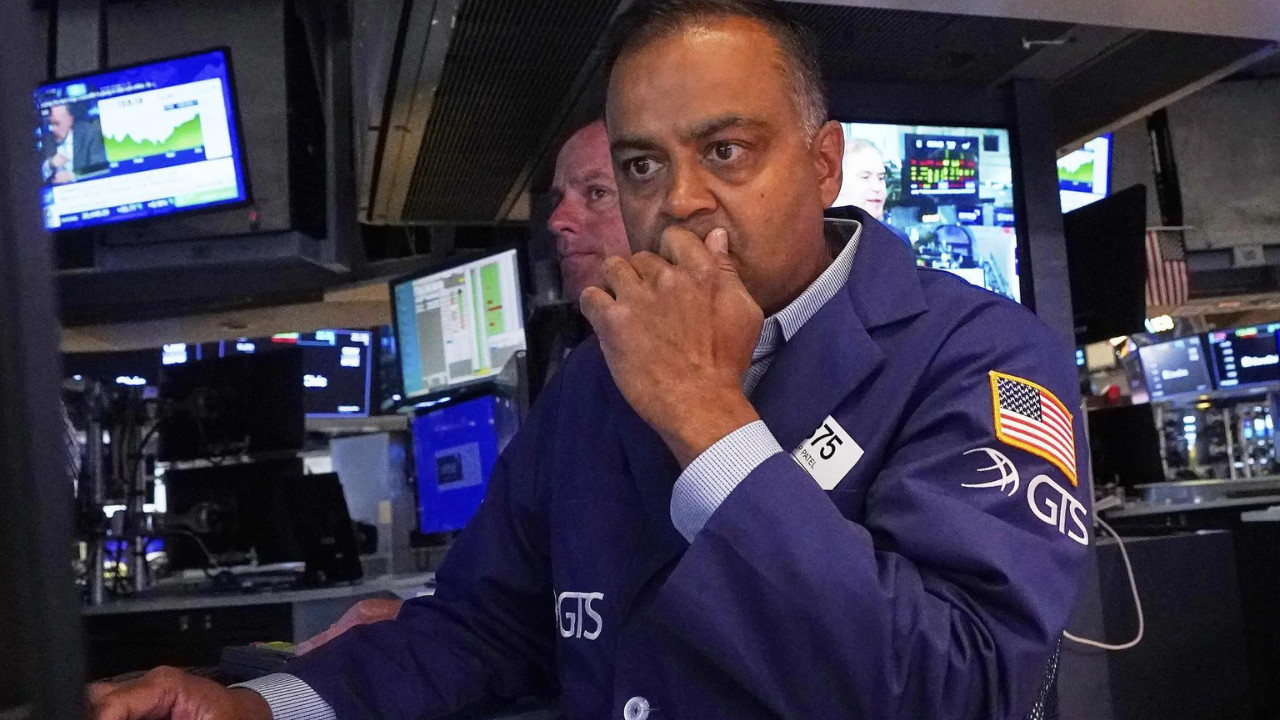Wall Street saw slight gains this Monday, staying close to record highs. Telecom giant Verizon led the way after strong earnings. Microsoft shares dipped due to a software patch. Block Inc joined the S&P 500. Steelmaker Cleveland-Cliffs rose, crediting Trump-era tariffs. Investors are watching upcoming earnings from companies like General Motors and Tesla.
Wall Street’s Tightrope Walk: Earnings Optimism vs. Tariff Tension
Wall Street is playing a high-stakes game right now, a delicate dance between the allure of strong corporate earnings and the looming shadow of potential tariff escalations. The major indexes are flirting with record highs, but the mood feels less like a celebration and more like cautious optimism, a sense that the good times could be derailed at any moment.
The recent market performance reflects this duality. We’ve seen modest gains, driven by a better-than-expected start to earnings season. Companies are, by and large, painting a rosy picture, showcasing resilience in the face of economic headwinds. This news fuels investor confidence, pushing stock prices upward. But behind the headline numbers, whispers of concern persist.
One of the biggest elephants in the room? Tariffs. The potential for increased tariffs, particularly on goods imported from key trading partners, is casting a long shadow over the market. The mere suggestion of these trade barriers is enough to send ripples of unease through the financial world. Businesses are worried about the impact on their supply chains, their bottom lines, and ultimately, their ability to maintain the current momentum.
It’s a classic push-and-pull scenario. On one side, you have the tangible evidence of corporate profitability, suggesting that the economy is weathering the storm better than anticipated. On the other, you have the intangible, yet powerful, threat of protectionist trade policies that could undo all the progress.

This isn’t just about abstract economic theory. Tariffs have real-world consequences. They translate to higher prices for consumers, reduced competitiveness for businesses, and potentially slower economic growth. Companies that rely on imported materials or export goods are particularly vulnerable.
The Impact of Earnings on Market Sentiment
The earnings reports are like small windows into the health of individual companies. When a company exceeds expectations, it’s seen as a positive sign not just for that specific business, but for the broader economy. It suggests that demand is still strong, that businesses are adapting to changing conditions, and that the underlying fundamentals are solid. Strong company performance directly impacts the value of their stocks, contributing to the overall upward trend on Wall Street.
However, even positive earnings reports can’t completely drown out the noise of tariff anxieties. Investors are scrutinizing these reports for any signs of future vulnerability – any hints that tariffs are already impacting profitability or are expected to do so in the coming quarters. They’re looking for subtle shifts in language, changes in guidance, and any indication that companies are bracing for a less favorable trade environment.
Navigating the Tariff Uncertainty on Wall Street
So, how are investors navigating this complex landscape? Many are adopting a cautious approach, selectively investing in companies that appear best positioned to weather a potential trade war. This often means favoring domestic-focused businesses, those with strong brand loyalty, or those that have already taken steps to diversify their supply chains.
Others are hedging their bets, diversifying their portfolios across different asset classes to mitigate risk. Some are even sitting on the sidelines, waiting for greater clarity on the tariff front before making any major moves. This approach is an understandable reaction to the inherent uncertainty; however, it also means potentially missing out on gains if the tariff situation remains stable or even improves.
Finding Opportunities Amidst the Volatility
The current market volatility, driven by the tariff vs. earnings tug-of-war, isn’t necessarily a cause for alarm. In fact, it can create opportunities for savvy investors. By carefully analyzing company fundamentals, understanding the potential impact of tariffs on specific industries, and adopting a long-term perspective, it’s possible to identify undervalued assets and capitalize on market fluctuations. It is important to remember that volatility is a natural part of the investment cycle.
Related content: [Link to an article about diversification strategies].
Ultimately, Wall Street’s fate hangs in the balance. The outcome will depend on a complex interplay of factors, including future trade policy decisions, the strength of corporate earnings, and the overall resilience of the global economy. One thing is certain: the coming weeks and months will be anything but boring. Investors will need to stay informed, remain flexible, and be prepared to adapt to a rapidly evolving landscape. The market, as always, rewards those who can see beyond the immediate noise and identify the long-term trends.







